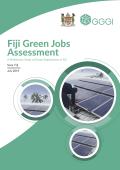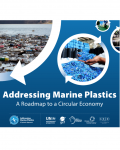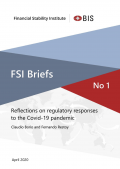
This report develops a definition of green jobs for Fiji, considers initiatives with potential for green jobs creation, estimates existing green employment, assesses the potential for additional green jobs creation, identifies major employment changes as the economy greens, and recommends how green employment can grow while minimising other job losses.

This publication identifies actions to reduce plastics leakage, with guidance on the stakeholders involved and the timescales. It aims to improve the circularity of the plastics value chain, along with minimising leakage, especially into marine environments.

This article discusses the impact of climate change, especially on semi-arid lands. It urges governments and their development partners to put semi-arid land inhabitants and their activities at the heart of efforts to support adaptation and climate-resilient development, identifying opportunities to capitalize on the knowledge, institutions, resources, and practices of semi-arid land populations in adaptation action.

This study discusses the regulations put in place due to the COVID-19 pandemic, and provides three main principles to guide how these regulations should be constructed and carried out.

The health of citizens is the first priority for governments responding to the COVID‑19 pandemic, but the need to limit the economic impacts of the crisis is also of great concern. Many governments are considering how to stimulate their economies once the pandemic is brought under control. In these efforts to safeguard economic stability, energy efficiency has a strong role to play in boosting jobs and economic growth while also supporting clean energy transitions around the world.
